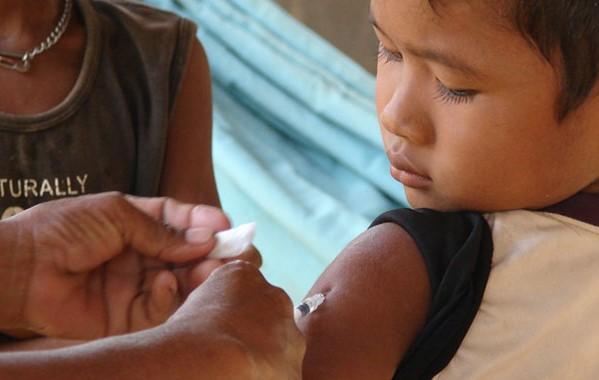New data collected by the Pew Research Center show that 88% of Americans believe the health benefits of measles, mumps, and rubella (MMR) vaccination outweigh the risks, but there were significant differences among race, age, and education level—and a separate study highlights the impact of misinformation surrounding the human papillomavirus (HPV) vaccine.
Pew found that 69% of Americans consider the risk of side effects from the MMR vaccine to be either low or very low, roughly the same percentage reported in 2016, when Pew last surveyed public attitudes about the vaccine.
But 46% of black and 45% of Hispanic Americans rated the risk of side effects from the vaccine as at least medium, compared with 23% of white Americans, Pew said.
"Further, about a third of black adults (36%) see very high preventive health benefits from the vaccine, compared with 48% of Hispanic and 61% of white adults," Pew said in a news release yesterday. "Since 2016, there has been no increase in the share of black Americans who see very high preventive health benefits from the vaccine, even as the shares who say this have increased among white Americans (61%, up from 50% in 2016)."
Education, income and MMR perceptions
The numbers come at the end of a decade that saw a decline of MMR uptake in half of the United States, and after a year that saw the most US measles cases since the disease had been declared eliminated from the United States in 2000.
Outbreaks in Orthodox Jewish communities in New Jersey and New York were the largest of US measles outbreaks last year, and the nation recorded 1,282 measles cases for the year, according to the Centers for Disease Control and Prevention (CDC). Outbreaks were linked to international travel to Ukraine, Israel, and the Philippines.
Pew found that higher levels of education and higher household incomes correlated to more positive views of MMR vaccination: 93% of Americans with a postgraduate degree say the health benefits of the MMR vaccine are very high or high, while 68% of those with a high school degree or less education say the same.
And, in a finding echoing survey results in 2016, 82% of Americans said they favored mandatory MMR vaccination for public school attendance. Again, families with lower incomes were more likely to oppose mandatory school vaccination.
"About two-in-ten lower-income Americans (21%) say parents should be able to decide not to vaccinate for MMR, while just 9% of upper-income Americans say the same," Pew said.
Misinformation tied to HPV vaccine decline
In a related study that looked at popular perceptions of vaccines, researchers from the University of North Carolina (UNC)-Chapel Hill noted that fewer Danish girls and women got vaccinated against HPV when vaccine misinformation spread through Danish media outlets from 2013 to 2016.
The researchers, whose study was published yesterday in Vaccine, said the misinformation led to a 50.4% drop in vaccinations, and was at its low point only 49.6% of baseline uptake. The HPV vaccine protects against several types of cervical and other cancers.
"Denmark is a good case study to see how a country deals with vaccine misinformation. By using anecdotal stories, media can create a false equivalence between outrageous claims and scientific facts," said UNC-Chapel Hill professor Peter R. Hansen, PhD, in a press release. Hansen was a lead author of the study. "The media stories that include inaccurate information cut HPV vaccine uptake in half. Recovery has been slow and costly. Resources are being used to combat misinformation instead of being used for healthcare benefits."
Vaccination rates recovered somewhat after the government launched a media campaign in 2017 encouraging girls to get vaccinated.
See also:
Jan 7 Pew Research Center report
CDC measles page
Jan 7 Vaccine study
Jan 7 UNC-Chapel Hill press release






















